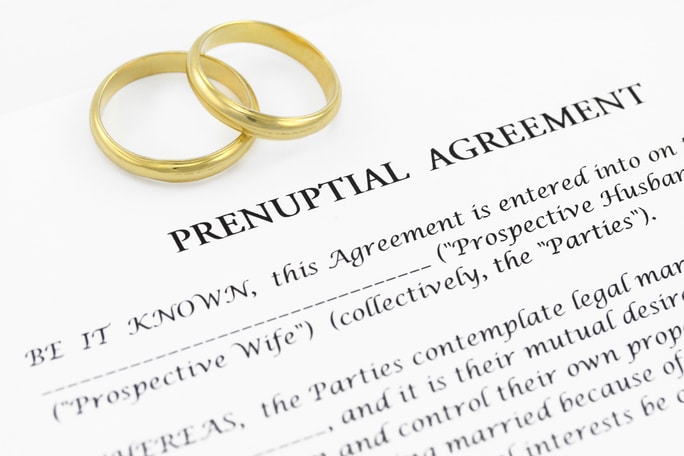Marriage is a beautiful union, but it also carries significant legal and financial implications. Many couples choose to safeguard their assets and define their financial responsibilities through marital agreements. In New Jersey, couples can enter into either a prenuptial agreement (prenup) or a postnuptial agreement (postnup). While both serve to clarify financial matters and protect individual assets, they have key differences in timing, enforceability, and legal considerations. This article explores the distinctions between prenuptial and postnuptial agreements in New Jersey and why a couple might choose one over the other.
What Is a Prenuptial Agreement?
A prenuptial agreement is a legally binding contract entered into by two individuals before they get married. This document outlines how assets and debts will be handled in the event of divorce, separation, or death. In New Jersey, prenups are governed by the Uniform Premarital and Pre-Civil Union Agreement Act (UPPA), ensuring that they are executed fairly and with full financial disclosure.
Key Features of a Prenup in NJ:
- Executed before marriage: The agreement must be signed before the wedding.
- Financial disclosure required: Both parties must provide full disclosure of their assets, debts, and financial obligations.
- Modifications: Changes can only be made after marriage with a new agreement (postnup).
- Common provisions: Prenups often include asset division, spousal support terms, and protection of family-owned businesses or inheritances.
- Cannot dictate child custody/support: Any provisions regarding child support or custody are unenforceable, as these matters are determined by the court in the child’s best interest.
 Why Couples Choose a Prenup:
Why Couples Choose a Prenup:
- One or both partners have significant assets or debts.
- Protection of family businesses, inheritances, or pre-existing wealth.
- To clarify financial responsibilities during the marriage.
- To avoid lengthy and costly disputes in the event of divorce.
What Is a Postnuptial Agreement?
A postnuptial agreement is similar to a prenup but is executed after the couple is already married. While prenups are more common, postnups can serve as a valuable tool for couples who experience significant financial changes or want to clarify their financial expectations after marriage.
Key Features of a Postnup in NJ:
- Executed after marriage: Unlike a prenup, a postnup is created after the couple is legally married.
- Financial disclosure required: Just like with prenups, full transparency is necessary.
- Must be fair and voluntary: Courts closely scrutinize postnups to ensure no coercion or unfair advantage.
- Can address asset division and spousal support: Postnups often include financial responsibilities and property division terms.
- More difficult to enforce: Since a postnup is created after marriage, courts tend to scrutinize them more than prenups to ensure fairness and voluntariness.
Why Couples Choose a Postnup:
- One spouse experiences a significant financial gain (inheritance, lottery, business success, etc.).
- The couple did not create a prenup but wants to establish financial protections.
- To resolve financial disputes that arise during the marriage.
- A change in marital dynamics, such as a spouse choosing to leave the workforce.
- To clarify financial arrangements in a second marriage or blended family.
Key Differences Between Prenups and Postnups in NJ
| Feature | Prenup | Postnup |
|---|---|---|
| Timing | Before marriage | After marriage |
| Legal Standing | Generally easier to enforce | More scrutiny from courts |
| Financial Disclosure | Required | Required |
| Common Uses | Protecting assets before marriage, clarifying financial expectations | Addressing financial changes after marriage, resolving disputes |
| Enforceability | Typically stronger due to clear pre-marital agreements | Courts may examine more closely for fairness and voluntariness |
Enforceability and Legal Considerations in NJ
For either a prenup or postnup to be enforceable in New Jersey, several legal requirements must be met:
- Voluntariness – Both parties must enter into the agreement willingly without coercion or duress.
- Full Financial Disclosure – Each spouse must fully disclose all assets, debts, and financial obligations.
- Fairness – The agreement must not be unconscionable or grossly unfair to one party.
- Legal Representation – While not mandatory, it is highly recommended that each spouse has their own attorney to ensure fairness.
- Proper Execution – The agreement must be in writing and signed by both parties.
- Cannot Dictate Child Support or Custody – Courts retain the authority to determine child-related matters based on the child’s best interests.
Should You Get a Prenup or Postnup in NJ?
The decision to enter into a prenup or postnup depends on the couple’s unique financial and personal situation. Here are some guiding factors:
- If you have significant assets or debts before marriage – A prenup is the better choice.
- If you have already married but experienced financial changes – A postnup can help define new financial boundaries.
- If you own a business or expect a major inheritance – A prenup can protect these assets from becoming marital property.
- If marital conflicts arise over money – A postnup can help clarify financial expectations and prevent disputes.
- If you are entering a second marriage with children from a previous relationship – Either agreement can ensure financial clarity and protect children’s inheritance rights.
Prenuptial and postnuptial agreements in New Jersey serve as essential tools for couples who wish to define financial expectations and protect assets. While both agreements offer similar benefits, the key distinction lies in their timing and enforceability. Prenups are executed before marriage and generally hold stronger legal standing, while postnups are created after marriage and are subject to stricter court scrutiny.
Regardless of which option is chosen, it is crucial to consult with an experienced family law attorney to ensure the agreement is fair, legally sound, and tailored to the couple’s unique circumstances. Open communication and transparency in financial matters can strengthen a marriage and prevent unnecessary disputes down the road.
Looking for a Family Attorney in New Jersey?
Other Posts:

